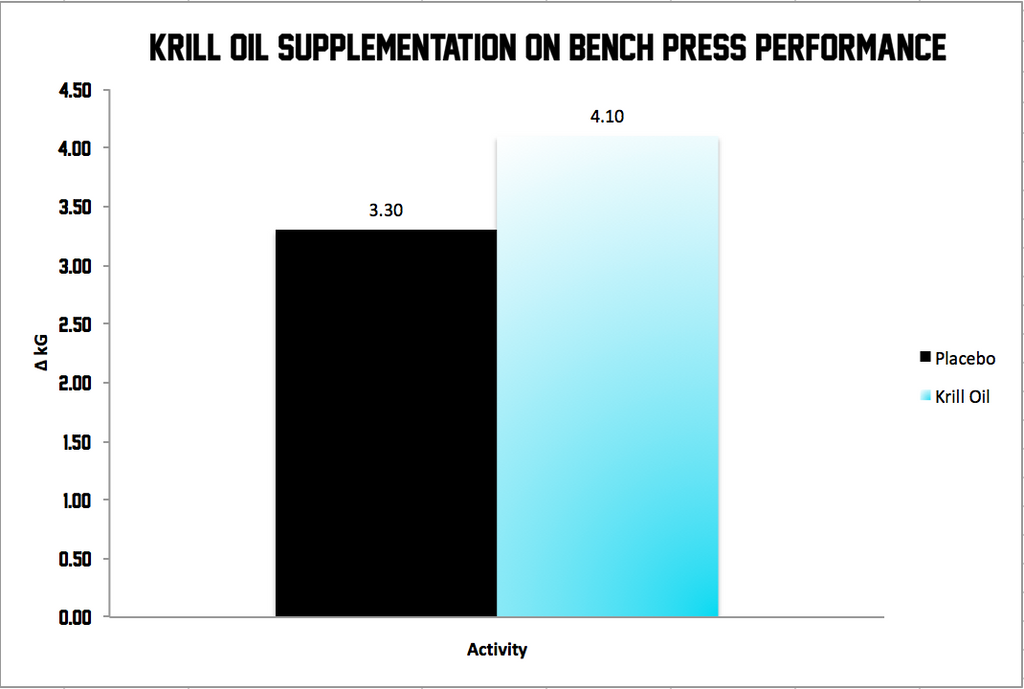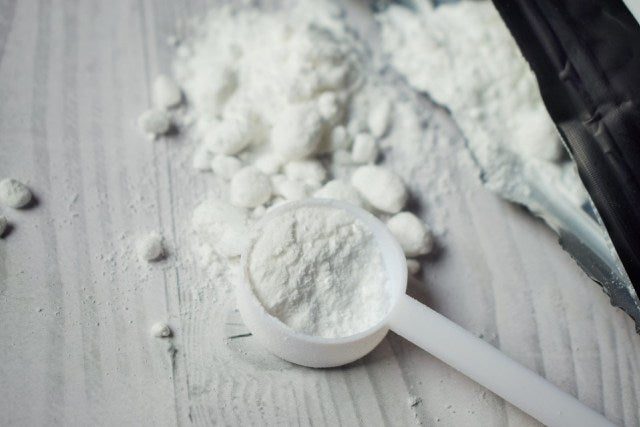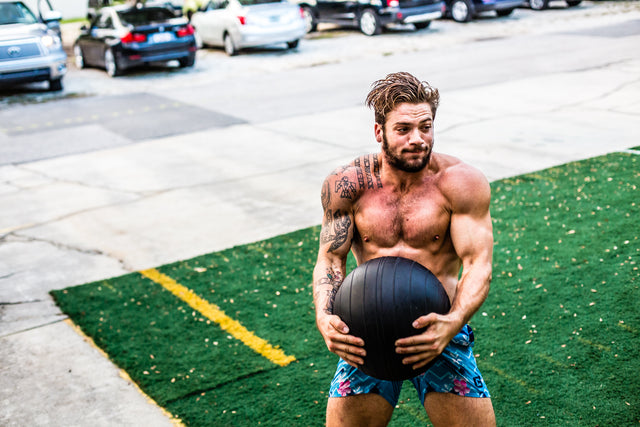Study Design: Pilot Study For Future Randomized Control Trial
Author Information
John Georges, 1 Matthew H. Sharp, 1 Ryan P. Lowery, 1 Jacob M. Wilson, 1 Martin Purpura, 2 Troy A. Hornberger, 3Flint Harding, 4 James H. Johnson, 4 David M. Peele, 4 and Ralf Jäger 2
1Applied Science and Performance Institute, 5850 W. Cypress St., Tampa, FL 33607, USA
2Increnovo LLC, 2138 E. Lafayette Pl, Milwaukee, WI 53202, USA
3Department of Comparative Biosciences, University of Wisconsin-Madison, Madison, WI 53706, USA
4Avoca Inc., 841 Avoca Farm Rd., Merry Hill, NC 27957, USA
1Applied Science and Performance Institute, 5850 W. Cypress St., Tampa, FL 33607, USA
2Increnovo LLC, 2138 E. Lafayette Pl, Milwaukee, WI 53202, USA
3Department of Comparative Biosciences, University of Wisconsin-Madison, Madison, WI 53706, USA
4Avoca Inc., 841 Avoca Farm Rd., Merry Hill, NC 27957, USA
Applied Science and Performance Institute, 5850 W. Cypress St., Tampa, FL 33607, USA
Department of Comparative Biosciences, University of Wisconsin-Madison, Madison, WI 53706, USA
Background
Athletes use nutrition strategies to improve their training and performance through increasing their metabolic capacity, delaying the onset of fatigue, and improving muscle hypertrophy by enhancing recovery, improving immune function, and decreasing oxidative stress. Krill oil is rich in long-chain omega-3 polyunsaturated fatty acids (PUFAs), eicosapentaenoic acid (EPA), and docosahexaenoic acid (DHA), which have been found to have positive effects on inflammation [1]. In krill oil, omega-3 PUFAs are bound to phospholipids (PL), whereas in fish oil, the majority of omega-3 PUFAs are bound to triacylglycerol (TG) [2]. Greater bioavailability of omega-3 PUFA from krill oil in comparison to fish oil has been suggested based on lower doses of krill oil needed to result in a similar bloodstream level of EPA and/or DHA; however, more carefully controlled human trials are needed to establish their relative efficacies after chronic administration [3]. Contrasting results have been found on the effects of fish oil supplementation on muscle damage and postexercise soreness in healthy men and women. While most of studies at ranges from 2.4 to 6 g/d for 1 to 8 weeks have shown beneficial effects [4–8], two studies showed no effect [9, 10], potentially due to different types of exercise used to induce muscle damage or differences in the dose and duration of omega-3 PUFA supplementation among studies. A combination of EPA and DHA was found to increase the rates of muscle protein synthesis via an increase in activation of the mTOR-p70s6k signaling pathway in young- and middle-aged men and women [11]. Fish oil supplementation in combination with [12] or without [13] resistance exercise resulted in increased strength and functional ability in older adults. However, potential long-term benefits of omega-3 PUFA supplementation on muscle hypertrophy and performance in young healthy subjects undergoing a controlled resistance training program are currently unknown.
Krill oil contains astaxanthin, a red carotenoid pigment and strong antioxidant that naturally occurs in salmon, shrimp, krill, crustaceans, or certain types of algae, giving krill its reddish color. Astaxanthin administration has been shown to reduce muscle damage [14, 15], to increase time trial performance and power output in competitive cyclists [16], and to increase strength/endurance (number of squats) [17]. However, astaxanthin failed to improve muscle soreness and muscle damage in resistance trained men following an acute bout of eccentric exercise (coadministered with lutein) [18]. Discrepancies in astaxanthin's ability to attenuate exercise-induced muscle injury might be due to the type of exercise stress (resistance or endurance exercise) or the dosage and timing of the administration. Krill oil contains approximately 0.5 mg of astaxanthin per 3 g of krill oil, which is below the currently established effective dose of 4 mg for athletes. However, the absorption of astaxanthin can be greatly enhanced in the presence of fats, surfactants, or phospholipids. The phospholipid content in krill oil will likely increase the absorption of astaxanthin closing the gap between the actual content and effective dose.
In athletes, krill oil has been shown to improve postexercise immune function (2 g/d for six weeks) [19] and diminished postexercise oxidative damage during recovery (1 g/d for six weeks) [20]; however, it failed to improve exercise performance (cycling time trial [19] and total run time in a 2,000 m test [20]). The lack of performance benefits of krill oil supplementation in previous exercise studies might have been based on a lack of an accompanying controlled challenging training protocol optimizing krill oil's benefits on recovery, as muscle recovery after an exercise bout might influence training adaptations. While krill oil's effect on mTOR signaling is currently unknown, DHA/EPA has been shown to activate the mTOR-p70s6k signaling pathway [11]. A comparison of soy-derived (containing no omega-3 PUFAs) and PUFA-containing egg-derived phosphatidic acid showed a potential attenuating effect of PUFAs bound to PL on mTOR activation [21]. Therefore, the aim of the present study was to investigate the ability of krill oil to stimulate mTOR signaling and its ability to augment resistance training-induced changes in body composition and performance.
Methods
In double-blind, placebo-controlled study, resistance trained subjects consumed either 3 g krill oil daily or placebo, and each took part in an 8-week periodized resistance training program. Body composition, maximal strength, peak power, and rate of perceived recovery were assessed collectively at the end of weeks 0 and 8. In addition, safety parameters (comprehensive metabolic panel (CMP), complete blood count (CBC), and urine analysis (UA)) and cognitive performance were measured pre- and post-testing.
Results
Krill oil significantly stimulated mTOR signaling in comparison to S-PC and control. No differences for markers on the CMP, CBC, or UA were observed. Krill oil significantly increased lean body mass from baseline (p=0.021, 1.4 kg, +2.1%); however, there were no statistically significant differences between groups for any measures taken.
Conclusions
Krill oil activates mTOR signaling. Krill oil supplementation in athletes is safe, and its effect on resistance exercise deserves further research.
















